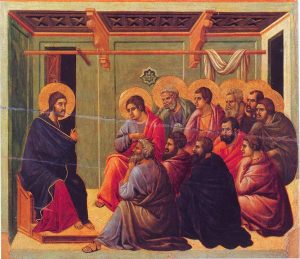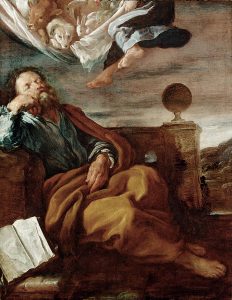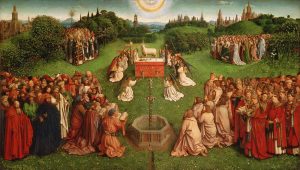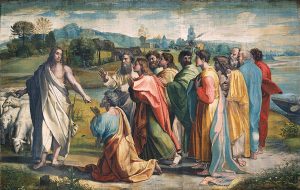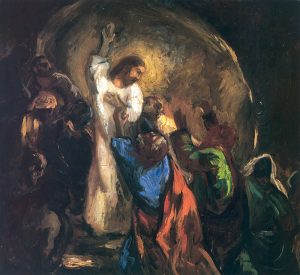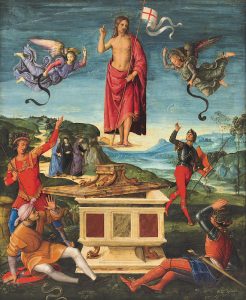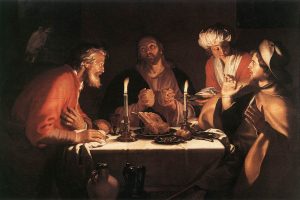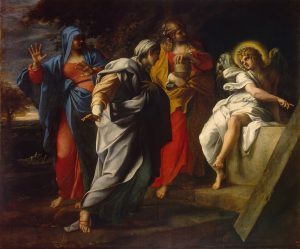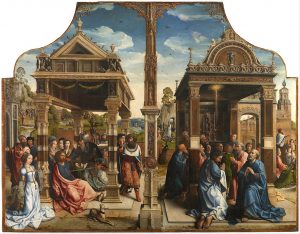Illuminations on the Lectionary readings for May 29, 2022 (Easter 7C)
First Reading: Acts 16:16-34
Still in the Greek city of Philippi, Paul and Silas encounter an enslaved woman who at first seems to be proclaiming their mission with loud, prophetic sounding shouts.
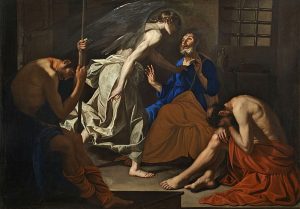
The Liberation of St. Paul (early 1640s), oil painting on canvas by Antonio de Bellis (1616-c.1656). The Blanton Museum of Art, University of Texas at Austin. (Click image to enlarge.)
It quickly becomes clear, though, that she is possessed by a particularly annoying demon. Things get out of control when a frustrated Paul casts the demon out. This angers her owners, who profited by presenting her as a fortune teller. The argument attracts the authorities, who flog Paul and Silas and throw them in jail. But all ends well when a surely God-sent earthquake breaks them out of jail, and even the frightened but amazed jail keeper converts to Christianity.
Psalm: Psalm 97
This ancient song of praise envisions God as a mighty king who commands clouds and darkness, lightning and fire; a ruler so powerful that the earth itself is afraid. Recalling the history of the chosen people in warlike terms, it proclaims a righteous Lord who defeats the false gods of graven images, bringing joy to the cities and people of Judah. Looking past the psalm’s warlike context, we find good advice for all ages: Practice righteousness. Insist on justice for the weak, not just the strong. Resist evil, and give thanks that God loves us.
Second Reading: Revelation 22:12-14, 16-17, 20-21
We come now to the closing verses of Revelation. Many in the early church were quite certain that the Lamb – Jesus – would return very soon, perhaps during their own lifetimes. It would be many generations before the early church would accept, as we still do, that the ideas of life and eternity and God’s kingdom aren’t that simple. Nevertheless, the closing message of the Lamb remains one of hope: “Let everyone who is thirsty come. Let anyone who wishes take the water of life as a gift. … Come, Lord Jesus!”
Gospel: John 17:20-26
Jesus’ long final conversation with his apostles at the Last Supper as told by John now concludes. It began four chapters earlier as Jesus washed their feet and they began their final supper. Now, just before Judas and the soldiers come to take Jesus away for trial and crucifixion, Jesus’ words as told by John become so poetic that it may seem hard to follow them at first. A deep connection of love unites the Father and Son, Jesus says. And, Jesus prays, that love is given also to the people of God: As Jesus and the Father are one, so will we all be one in God. Jesus has told us to love one another as he has loved us; now in this final discourse he asks the Father to love us as the Father has loved Jesus.

